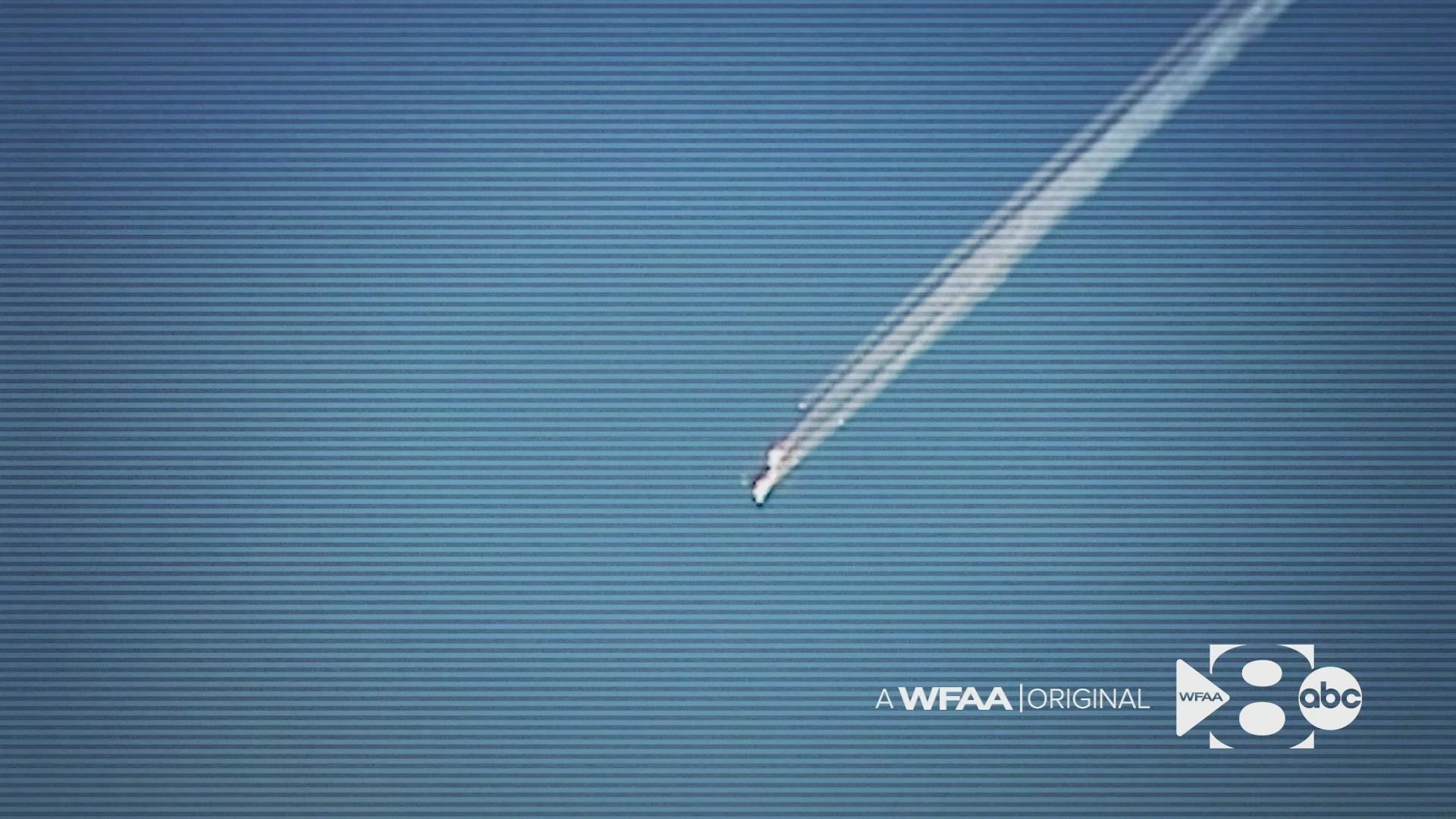NACOGDOCHES, Texas — When space shuttle Columbia disintegrated on its descent in 2003, it catapulted the small east Texas city of Nacogdoches into big-time infamy.
Thousands of people across Texas witnessed Columbia race across the Texas sky. What started as an awe-inspiring moment quickly turned into a gut-wrenching moment.
"Everybody had a story. Everybody could tell you what they were doing at 8 o' clock on February the 1st," said Sister Susan Catherine, who 20 years ago was the county judge and went by the name Susan Kennedy.
Sister Catherine remembers the 20-year-old event like it just happened. She remembers she was cooking breakfast at the time when the county sheriff called to confirm the terrible news.
Edward Michaels, then a college planetarium director at Stephen F. Austin University, and his daughter were up before dawn to watch Columbia fly over Texas to its destination in Florida.
"Our binoculars were immediately on target," said Michaels as their eyes were fixed on the shuttle and single beam of light and single contrail until everything changed. "Something was not right. The shuttle looked like a 4th of July sparkler in slow motion," Michaels recalled.
Campbell Cox was having his morning coffee when Columbia exploded over his Texas town. Cox and his family rushed to the family farm seven miles east of Nacogdoches to find pieces of that shuttle.
"A large piece we found a mile from here. I think we quit counting after 150 [pieces]," said Cox. "We found pieces in pastures, lakes, downtown parking lots, people's yards, school grounds...everywhere. It was just everywhere," said Catherine.
Then-Judge Susan Kennedy was thrust into action as media from all over the world descended on their East Texas county. Kennedy was the first local public face for the tragedy.
She remembers many sleepless nights as she managed the local search-and-rescue operations early on before the feds moved in.
"This was their home. Their home will always carry the weight of this very tragic event," she said.
"We realized in that moment we just saw seven people die," said Michaels.
The debris field covered hundreds of miles over East Texas. It instantly became a search-and-recover operation. They were looking for anything, but most importantly, anyone they could identify. Teams of volunteers had gathered to gathered to systematically combs hundreds of square miles of rolling and rugged terrain.
"We kept using the two words over and over...surreal and sad," said Cox.
For Cox, finding pieces of the shuttle felt like finding an answer to what happened. He said he felt "duty-bound" in that moment to help with the searches.
Judge Kennedy felt she was duty-bound to the seven crew members' families. She also felt the weight of recovering the remains of the seven astronauts and the dignity they deserved.
"The innocence of the adventurer now get's shaken. We can lose hope in those kinds of situations," said Sister Catherine.
Sister Catherine took religious vows in 2011. Her husband had died of cancer and seven astronauts had died over her town. She chose a private life after a very public one.
She told WFAA that she and her husband had always lived a very prayerful life. But her decision to become a nun and join the Daughters of Divine Hope only came about after what she'd experienced.
"I found myself drawn more and more and more into the suffering of Christ," Sister Catherine said.
What happened on Feb. 1, 2003, is a story of exploration, both intended and unexpected. If you ask many people in East Texas they'll be able to tell you where they were when space shuttle Columbia shattered over their heads.
It was an emotional time that still resonates with the community.

